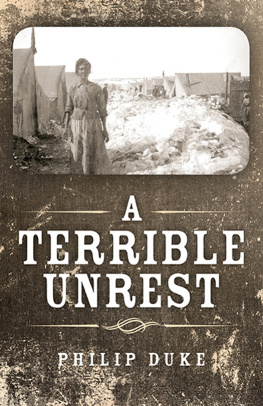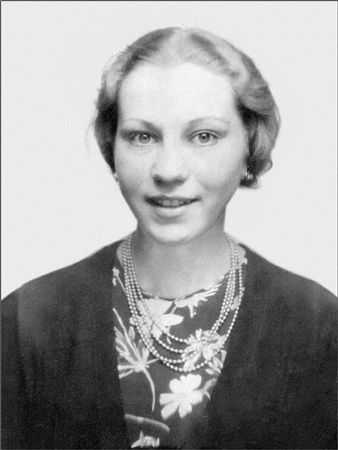Bell Anthea - Gone to Ground : One womans extraordinary account of survival in the heart of Nazi Germany
Here you can read online Bell Anthea - Gone to Ground : One womans extraordinary account of survival in the heart of Nazi Germany full text of the book (entire story) in english for free. Download pdf and epub, get meaning, cover and reviews about this ebook. City: London, year: 2015, publisher: Profile Books, genre: Non-fiction. Description of the work, (preface) as well as reviews are available. Best literature library LitArk.com created for fans of good reading and offers a wide selection of genres:
Romance novel
Science fiction
Adventure
Detective
Science
History
Home and family
Prose
Art
Politics
Computer
Non-fiction
Religion
Business
Children
Humor
Choose a favorite category and find really read worthwhile books. Enjoy immersion in the world of imagination, feel the emotions of the characters or learn something new for yourself, make an fascinating discovery.
- Book:Gone to Ground : One womans extraordinary account of survival in the heart of Nazi Germany
- Author:
- Publisher:Profile Books
- Genre:
- Year:2015
- City:London
- Rating:4 / 5
- Favourites:Add to favourites
- Your mark:
Gone to Ground : One womans extraordinary account of survival in the heart of Nazi Germany: summary, description and annotation
We offer to read an annotation, description, summary or preface (depends on what the author of the book "Gone to Ground : One womans extraordinary account of survival in the heart of Nazi Germany" wrote himself). If you haven't found the necessary information about the book — write in the comments, we will try to find it.
Chapter 8Chapter 9; Chapter 10; Part Five: I was the girl without a name: After 1943 Something Like a Normal Life; Chapter 1; Chapter 2; Chapter 3; Chapter 4; Chapter 5; Chapter 6; Chapter 7; Part Six: I didnt have to surrender: The War is Over; Chapter 1; Chapter 2; Chapter 3; Chapter 4; Afterword; Index of Names; Picture Credits; Thanks to the Following Institutions and Persons.
Berlin 1941. Marie Jalowicz Simon, a nineteen-year-old Jewish woman, makes an extraordinary decision. All around her, Jews are being rounded up for deportation, forced labour and extermination. Marie takes off the yellow star and vanishes into the city. In the years that follow, Marie lives under an assumed identity, moving between almost twenty different safe houses. She is forced to accept shelter wherever she can find it, and many of those she stayed with expected services in return. She stays with foreign workers, committed communists and even convinced Nazis. Any false move migh. Read more...
Abstract: Copyright Page; Contents; Introduction; Prologue, 1942; Part One: I was to learn to assert myself: Childhood and Youth in Berlin; Chapter 1; Chapter 2; Part Two: Alone in the icy wastes: Forced Labour for Siemens Forced Labour for Siemens; Chapter 1; Chapter 2; Chapter 3; Chapter 4; Chapter 5; Chapter 6; Part Three: A rainbow of unimaginable beauty: Attempts at Flight; Going to Ground; Chapter 1; Chapter 2; Chapter 3; Chapter 4; Chapter 5; Part Four: The enemy is doing all this to us: The First Winter in Hiding; Chapter 1; Chapter 2; Chapter 3; Chapter 4; Chapter 5; Chapter 6; Chapter 7.
Chapter 8Chapter 9; Chapter 10; Part Five: I was the girl without a name: After 1943 Something Like a Normal Life; Chapter 1; Chapter 2; Chapter 3; Chapter 4; Chapter 5; Chapter 6; Chapter 7; Part Six: I didnt have to surrender: The War is Over; Chapter 1; Chapter 2; Chapter 3; Chapter 4; Afterword; Index of Names; Picture Credits; Thanks to the Following Institutions and Persons.
Berlin 1941. Marie Jalowicz Simon, a nineteen-year-old Jewish woman, makes an extraordinary decision. All around her, Jews are being rounded up for deportation, forced labour and extermination. Marie takes off the yellow star and vanishes into the city. In the years that follow, Marie lives under an assumed identity, moving between almost twenty different safe houses. She is forced to accept shelter wherever she can find it, and many of those she stayed with expected services in return. She stays with foreign workers, committed communists and even convinced Nazis. Any false move migh
Bell Anthea: author's other books
Who wrote Gone to Ground : One womans extraordinary account of survival in the heart of Nazi Germany? Find out the surname, the name of the author of the book and a list of all author's works by series.













